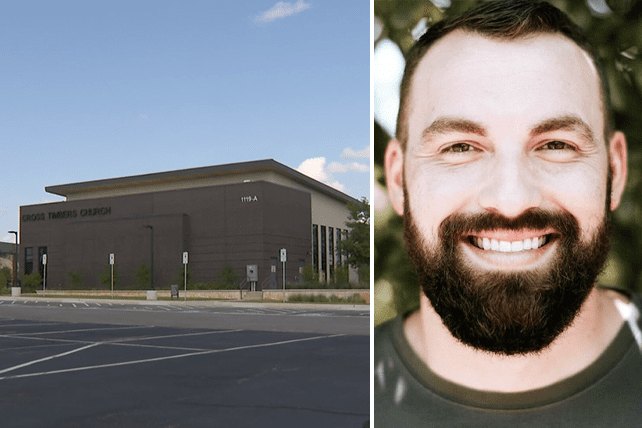“Let’s go! Jesus is King!” That’s what Canadian skateboarder Cordano Russell shouted this week as a camera panned across him and his Olympic competitors. Russell, who turns 20 on Aug. 4, didn’t medal at the Paris Games. But the devout Christian is looking ahead to 2028, when the Summer Olympics will be held in his adopted home state of California.
Russell was born in Ontario and spent part of his childhood in St. Louis. At age four, he found an old skateboard tucked away in a bush, and with his dad’s help, he learned everything he could about the sport. Asked whether that was fate, Russell replied, “Honestly, I feel like it was truly divine.”
RELATED: Olympic Swimmer Hunter Armstrong: Pain Has Deepened My Faith in God
By age eight, Russell talked his parents into moving to Southern California, with its world-famous skateboarding scene. As his skills grew, so did his stature. Russell’s 6-foot-3, 230-pound frame might seem more fitted to the football field—where he excelled in high school. But after “a lot of praying,” the athlete said, God showed him “that my love and my heart was set in skateboarding.”
Olympic Skateboarder Is Set Apart
Cordano Russell’s size allows him to gain tremendous power for skateboarding tricks. It also means he “burns through boards as fast as a sick person burns through tissues,” according to reporter Kelsey Grey. But Russell told her, “I like being unique; I like being different. I always try to be as authentic as I can.”
The Olympian also stands out because of his faith. He was raised in a Christian home, attending church and youth group. Russell doesn’t swear, and he listens to Christian musicians such as Lecrae.
The outgoing athlete also gives back, coaching and mentoring young basketball and flag football players. “I want to use my faith and talents to inspire others,” Russell said.
Maintaining balance and giving back helps the skateboarder “elevate” his game. “Honestly, it empowers me,” he said of serving. “I know where my true identity is, and that is in the Lord. So I wanted to use my time, talents, and treasures and ultimately be able to inspire others through that, through my faith, through who I am.”
Failure also helps the super-competitive Russell grow. “You’re going to fall on that ground so much,” he said. “But honestly, it creates in yourself this determination, this grittiness, this ability to withstand failure while still trying to go through and accomplish your goal.”
Cordano Russell’s Journey Has Been ‘Such a Blessing’
Cordano Russell, who graduated from high school with a 4.2 GPA, plans to study business-finance at the University of San Diego. “In skateboarding, you have to know how to manage your finances and grow your brand, so it’ll be very personal for me,” said the athlete, who will be the first in his family to attend college. “And eventually, I want to own a business with my family.”
































